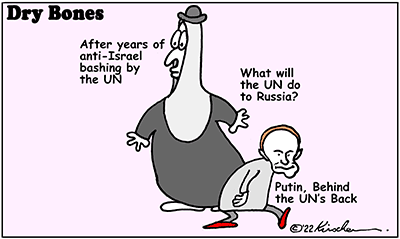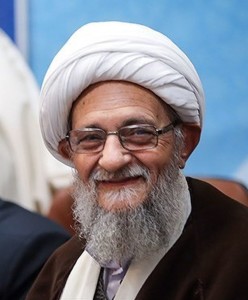Ruthie Blum: Jihad by Any Other Name
In his column in Haaretz on Thursday, Gideon Levy bemoaned that terrorism “is the only way open to the Palestinians to fight for their future … the only way for them to remind Israel, the Arab states and the world of their existence. If they don’t use violence, everyone will forget about them.”Jonathan Tobin: Violence Against Diaspora Jews Is Not Israel’s Fault
Levy was reacting to the killing spree in Israel that claimed the lives last week of 11 innocent people and left many others either physically wounded or psychologically traumatized. He failed to point out that two of the deadly attacks were committed by Arab citizens of Israel, not Palestinians, who had pledged allegiance to ISIS.
Though Levy has an extremely dim view of the Jewish state, he is well-versed in its history and current events. His failure to make the above distinction, then, was not due to ignorance or oversight.
No, the reason that he left out the identity of the perpetrators of the attacks in Beersheva and Hadera was that neither could serve as an example of the so-called ills of Israeli “occupation.” And he certainly wasn’t going to rethink his position on the Islamist angle to the story.
Instead, he was able to imply a natural affinity of Arab Israelis to their Palestinian brethren. And while at it, he — like his left-wing colleagues — could allude that Israel is at fault not only for a lack of a Palestinian state, but for abuse of its Arab citizens.
In this case, however, he also blamed the international community.
“When [the Palestinians] are quiet,” he wrote, “interest in their cause evaporates and fades from the agenda of Israel and the rest of the world.”
He went on to slam the Israel-initiated summit in the Negev, where the foreign ministers of the United Arab Emirates, Bahrain, Morocco and Egypt gathered early last week to strengthen the Abraham Accords. The way Levy saw it, those diplomats were sending a message of indifference to the Palestinians: that their plight was of no concern; that there were “more urgent matters and more important interests” on the agenda.
After three Arab terror attacks in a week that cost 11 lives, Israel’s government and citizens are in a heightened state of alert and worrying about the possibility of a series of individual attacks turning into a third intifada. But security officials spared a moment amid their mobilization to ramp up efforts to combat terror on the streets of Israel’s cities with another concern. According to Israel Defense Forces Chief of Staff Lt. Gen. Aviv Kochavi, the country’s leaders were also considering the possibility that Diaspora Jews might also be targeted by Palestinian radicals and/or their foreign sympathizers.62% of Israelis say Jerusalem morally obligated to help Jews worldwide
Kochavi was quoted by Israel’s Channel 13 television saying, “There is a real concern that the copycat effect could lead to efforts to hit Israeli and Jewish targets around the world.” He didn’t elaborate on this potential threat, though the report said that Israeli security agencies, including the Mossad, were going to need to step up attempts to combat such terror outside of the Jewish state.
If Kochavi is right, it will likely set off a renewed debate among some on the Jewish left about who will really be to blame for attacks on American Jews. Inevitably, some will say the fault lies with Israel for policies that its critics often claim make a terrorist response from oppressed Palestinians inevitable.
That’s the line we’ll likely hear from anti-Zionist groups like Jewish Voice for Peace and IfNotNow, who themselves often traffic in antisemitism. After all, they already think that Israel is to blame for everything that’s wrong in the Middle East and elsewhere. Such fallacies will also likely be echoed to some degree by liberal Zionists who ignore Palestinian intransigence and believe that Israel must be saved from itself. Such people think the refusal of Israelis to adopt suicidal policies that American Jews recommend will lead to disaster for everyone.
This is deeply wrong for a number of reasons.
The first is that it reflects the internalization of antisemitism by Jews, many of whom have always reacted to hatred against them by seeing it as a product of their own behavior or mistakes. The truth is that antisemitism is always about the antisemites, not what the Jews think or do. Jews are hated for a variety of often-contradictory reasons, and those who seek to find the cure for it within themselves are always looking in the wrong place.
A majority of Israelis, 62%, believe the country has a moral obligation to help Jews around the world facing financial difficulty or natural disasters. By contrast, just 37% of Israelis feel a sense of personal responsibility toward Diaspora Jews who have chosen not to immigrate to Israel. This according to new data published by the Diaspora Affairs Ministry Sunday in honor of Diaspora Week.
The Diaspora Index, which Diaspora Affairs Minister Nachman Shai was set to present to President Isaac Herzog, Sunday, reflects Israeli Jews' knowledge of Diaspora Jewry and Israeli views on Diaspora Jews, assimilation, and Israel-Diaspora ties. The index is the result of a survey carried out in February 2022 of 1,001 Israelis aged 17 to 70 and over representing a sample of the Jewish population with a margin of error of 3.2%.
Forty-nine percent of Israelis surveyed believe Israeli society needs to take the opinions and interests of Diaspora Jews into account on matters of religion and state. In addition, a majority of Israelis, 57%, believe Israel should take Jewish communities in the Diaspora into account when making decisions on foreign and defense policy that could impact Jews overseas.
The vast majority of Israelis surveyed, 85%, said Israel should take significant action to eradicate antisemitic and anti-Israel discourse on social media. Furthermore, 73% of Israelis said their Jewishness was very significant to them, a 4% decrease seen largely among secular and traditional Jews over the last year.
"In recent years, we are witness to a lively discussion on the nature of the relationship between world Jewry and Israeli Jews and the State of Israel and between world Jewry and itself. In a world in which anyone can abandon their identity and become a citizen of the world, and the culture emphasizes the uniqueness of the individual at the expense of society, the family, and the people as a Jew, many Jews ask themselves, 'what is the significance of my existence as a Jew?'" Herzog said.













.jpg)





















.jpg)





